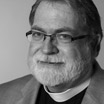Years ago when I was in The Episcopal Church (TEC) I found myself asking the same question. Why can’t we just agree to disagree, respect our differences and just get on with mission?
The Rev. Dr. Kendall Harmon helped me address this very question with a video presentation that the American Anglican Council has used in its presentations on the Global Anglican Realignment. I encourage you to watch the whole presentation, especially the “boats.” But if you want to see the answer to the question “what’s the fuss about sex?” here is the video portion from Kendall Harmon:
You see, there’s good reasons to fuss about the presenting issue of human sexuality and its limits. Like all the moral issues which presented deeper theological differences that threatened to tear asunder God’s church over centuries and councils, sex, today, is merely the tip of the iceberg. And like an iceberg, it’s not the tip that you see which will destroy the ship—it’s what lies beneath the surface. In other words, what is beneath the surface of the fuss about sex is precisely what will destroy the Church.
So what’s beneath the surface? As Harmon points out, the first layer is the Biblical doctrine of Creation: What makes our identity and flourishing as human beings? What did God create and bless as good? What has been corrupted by the fall (Genesis 3) and sin? Below Creation lies the Biblical doctrine of Marriage which God ordained in Genesis 2 and Jesus affirmed in Matthew 19 as between a man and a woman for life. The only two categories God created were marriage as such, or chastity. The teaching of the Bible is now at odds which the redefinition of marriage by secular authorities.
And that of course leads to the next level below Creation and Marriage which is Authority in the Church. Who makes decisions in the Church and how are they made? Is it a matter of simply creating facts on the ground to create a new consensus—for instance, by simply going ahead and blessing categories and unions that God neither created nor blessed at creation? Anglicans have traditionally exercised authority within the Church in a conciliar way—that is, through councils. The more important a decision may be, the more widely the Church needs to consult with others—even if it is the Mother Church of England. You see, there is always a deference to the consensus fidelium, the teaching of the Church that is grounded in Scripture, taught by the Apostles and their successors, and embraced and followed by the majority of Christians over space and time.
Of course this leads to an even deeper level beneath Creation, Marriage and Authority—and that is the authority of the Bible, the Scriptures. How shall we treat the plain grammatical meaning of the text? Are those verses dealing with sex merely a few antiquarian throwbacks to a hopelessly primitive culture that knew not what we know? Or are they part of a larger, wholly integrated and consistent narrative of man and woman together that runs from Genesis to Revelation, among people in a variety of contexts and cultures who knew the same practices that we know in our culture today?
But the most important level, and layer, beneath the surface is the nature of the Gospel itself. What is the message of Jesus to our world today, and what is the Good News of Jesus that the Church proclaims to our world? Is it “come as you are and stay as you are?” Is it “Come and define yourself any way you wish and let Jesus baptize and bless the identity you have chosen, whatever it may be?” OR is the Good news “Come as you are but don’t stay as you are for heaven’s sake? Find your identity in Christ alone, and let his transforming love change you and your relationships from the inside out?”
When we produced this presentation 3 years ago, the Church of England was still some distance from the iceberg. Like TEC, it has now crashed into that iceberg, in light of the rejection by its Synod last week of the “take-note” motion to at least “take note” of the Bishops’ Statement affirming marriage as between one man and one woman for life. As many have observed, this rejection of the resolution to “take note” is a repudiation of the Bishops’ teaching authority. In this case it is a rejection of the unique role of Anglican Bishops in teaching and guarding the faith and order of the Church. It raises further questions about the Church of England. Is this repudiation of the Bishops’ teaching authority merely a momentary check on one issue to send them back to try it again? Or is it a symptom of deeper departure from Anglican norms that calls into question the very Reformed-Catholic “Anglican” identity of the Church of England? Or is it a “Reformation” moment: a time for the Bishops to return to the clear norms of Scripture with regards to human sexuality?
Whatever moment this may be, the Archbishop of Canterbury’s Statement calling for a radical new Christian inclusion in the Church” did not address any of the layers beneath the surface of the iceberg.
Another example of leaving the issues unaddressed, and/or misdiagnosed, was found in a speech during the General Synod. A Synod member used the story of Jacob wrestling an angel and demanding a blessing to represent the LGBT community in the Church. Dr. Ian Paul, a conservative in the Church of England, lamented the analogy noting that such misappropriation of a Biblical text to support something which the Bible nowhere blesses is nothing less than a pretext, that is, a text without a context. “And as this happens,” Paul observes, “God is silenced:”
“This process of atomisation, isolation and decontextualisation is writ large all over the argument for change in the Church’s teaching, and it is why the debate is about so much more than just sex and marriage. It is about whether we will allow God to speak to us by his Spirit through the pages of Scripture, and in so speaking will form us in the likeness of Christ.” (Emphasis added).
And so we have two Bishops of the Church of England now openly breaking ranks with fellow bishops, joining the crowd that repudiated the “take note” resolution, and taking up the Archbishop’s banner of “radical inclusion” (intended or not) to advocate for “much much more than the maximum freedom” bishops offered pastorally, and to go to places “in relation to law and guidance where we have not previously gone.” – including, presumably, not yet authorized prayers and blessings for same sex unions. This is how Biblical revisionists establish facts on the ground, as we called them in TEC, right up to and including the change in the doctrine of marriage through the authorization of same-sex marriage.
It’s déjà vu all over again. “When the foundations are being destroyed, what can the righteous do?” (Psalm 11:3)
The first thing our brothers and sisters in the Church of England must do is realize what the fuss is really all about—and realize what they stand to lose.



